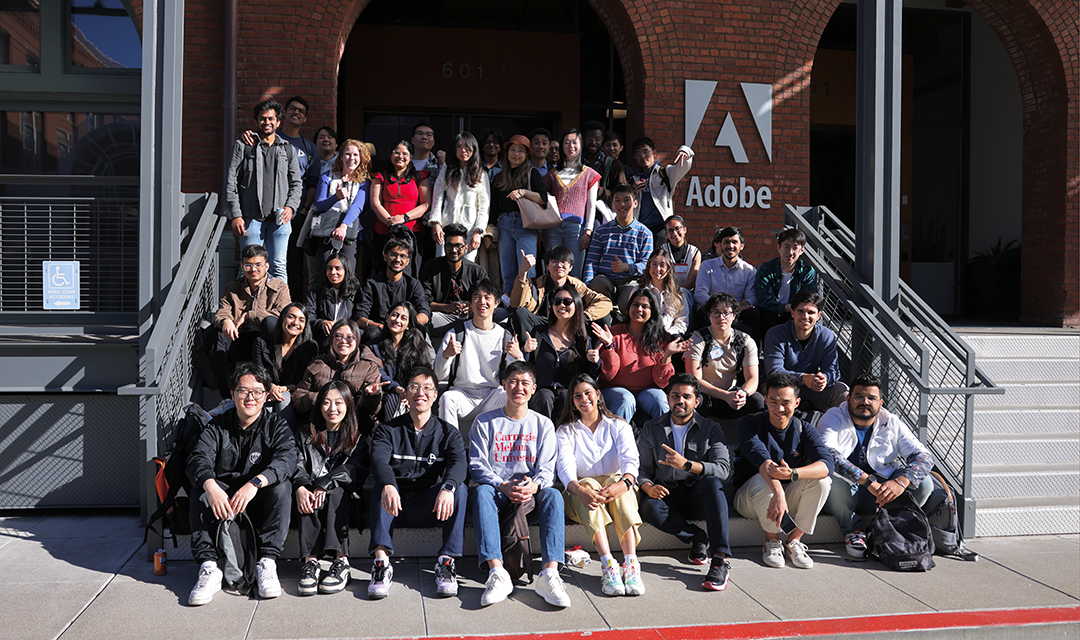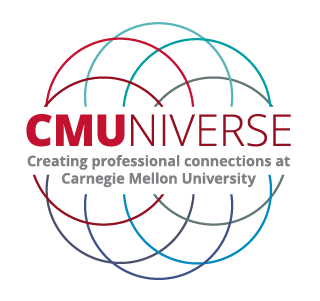A strong job search starts with focus. At CMU-Silicon Valley, we encourage students to be intentional about where they apply. That means considering not just job titles, but also environments, values, and growth potential.
Our team can help you build a personalized strategy that begins with a working list of companies aligned with your interests and goals. This list gives you a foundation to guide your outreach, resume targeting, and interview prep.

Step 1: Identify your top companies
Start by creating a list of 30 to 50 companies that genuinely interest you. This list is not a commitment. It is a tool to help you notice patterns, clarify your direction, and understand where you may want to apply.
You might begin by exploring:
- Where CMU alumni work (use LinkedIn + CMUniverse)
- Companies aligned with your academic track, such as AI, product, mobility, or security
- The salaries and destinations page for recent employer data!
- Employers participating in Tech Treks, Byte-Size Treks, or Career Services events
Step 2: Research and track
Once you’ve built your initial list of target companies, the next step is to learn more about each one. This process helps you move from general interest to specific action. Staying organized will make it easier to tailor your materials, prepare for interviews, and follow up thoughtfully.
Use tools like Huntr, Notion, Google Sheets to:
- Track job applications, interview stages, and contact info
- Can’t find an email to follow-up with regarding your application? Try Apollo to find a recruiter to reach out to
- Save job descriptions with keywords for tailoring your resume
- Set deadlines and reminders to follow up
Your tracker does not need to be perfect. The goal is to keep your search focused, reduce overwhelm, and create a system you can return to throughout the process.
Step 3: Apply with a referral when possible
Many CMU-SV students have found that the most effective applications are the ones backed by a connection. A referral can help your materials rise to the top of a recruiter’s list, especially in competitive hiring environments.
Before you apply:
- Tailor each resume using the job description’s language
- If a cover letter is required, ensure that it reflects the company mission and that you share how your work/values connects to their company vision
- Include relevant technical projects or leadership experience
These steps may take more time, but they also increase the chance that your application gets seen, and that your story connects more clearly with the role.
Tools to power your weekly job search
These tools are all part of a well-rounded search strategy and are regularly recommended by CMU-SV Career Services. Each one serves a different purpose, from finding roles to refining your materials and tracking progress. Learning to use them effectively will help you stay focused, organized, and confident throughout your search.
- Handshake – Browse job listings, RSVP to career events, and book 1:1 appointments with your career consultant.
- LinkedIn – Apply for tech roles, make your profile recruiter-ready and start connecting with alumni and professionals in your target field.
- Simplify – Get personalized job recommendations, autofill applications, and track your job search.
- JobRightAI – Get matched jobs fast, help in tailoring your resume to specific job descriptions with AI-generated feedback.
- Glassdoor – Research salaries, benefits, and employee reviews to evaluate company fit. Plus, there's a great job board!
- Wellfound - Interested in startups? This is the job board to apply!
Evaluating offers & making decisions
Receiving an offer is a major milestone. It is also a time to pause and reflect on what matters most to you. Students at CMU-Silicon Valley often describe this as one of the most personal and complex parts of the job search. It is completely normal to feel excited, uncertain, or somewhere in between.
We recommend starting with the Negotiating and Accepting Offers in Silicon Valley guide. It includes reflection questions, communication tips, and sample language for responding to offers, negotiating, or asking for more time.
As you review your offer, ask yourself:
- Role scope: Are you going to grow your skills in this role?
- Team: Did you connect with the people you met?
- Compensation: Does it align with your goals and cost of living?
- Location and lifestyle: Can you see yourself thriving there?
Step 1: Talk it through
Before you respond to an offer, schedule a one-on-one meeting with your career consultant on Handshake. We can help you weigh your options, prepare for next steps, and move forward with clarity and confidence.
In your meeting, you can:
- Review offer details, including compensation, benefits, and timelines
- Discuss whether negotiation makes sense for your situation
- Practice a negotiation conversation
This is your chance to slow down, ask questions, and get support tailored to your goals.
Step 2: Clarify what matters most
An offer can look great on paper, but still feel off to you. This step is about getting honest with yourself about what you want, what you need, and what would help you grow.
Ask yourself:
- What are my top three priorities in this next role?
- Am I making this decision out of excitement, alignment, or fear?
- If I were giving advice to a friend in my situation, what would I say?
You can talk through these questions with a career consultant, especially if you are feeling stuck or unsure. You do not have to sort through it all on your own.
Step 3: Make a decision you feel good about
Once you have reflected on your offer and talked it through, the next step is to decide whether to accept. Carnegie Mellon has an offer and hiring policy that gives students up to three weeks to make a decision. This policy is designed to give you the time and space to reflect without pressure. If you decide to accept an offer:
- Send a clear confirmation to the employer to officially accept. After you receive a response, it’s important to close the loop with any other opportunities you’ve been pursuing.
- Withdraw from active interview processes. Notify any companies you’ve been interviewing with that you are withdrawing from consideration, as you've accepted another offer.
- Decline other offers professionally. Respond respectfully and thank them for the opportunity and their time.
Taking these steps shows professionalism and ensures you maintain positive relationships for the future.
Once you commit, follow through with confidence and integrity. You can always reach out to your career consultant for guidance on how to communicate your decision or navigate next steps.
Landing an offer is a major achievement. Take a moment to acknowledge how far you’ve come, and know that we are here to support you through this transition.
You can also review our page on conducting an ethical job or internship search for more guidance on how to move forward with professionalism.


